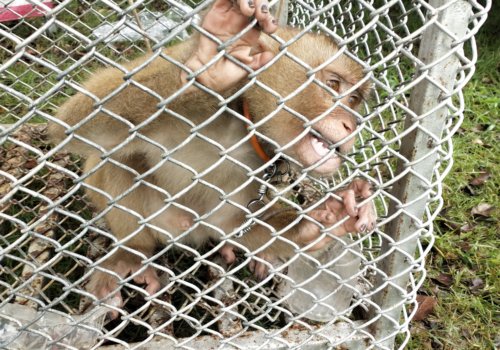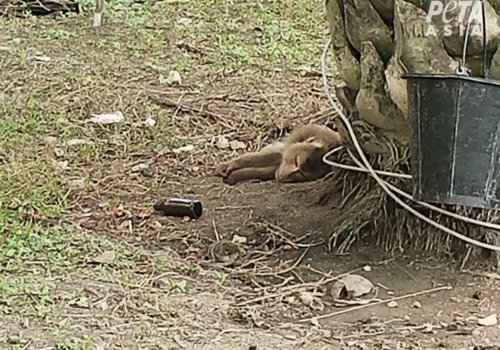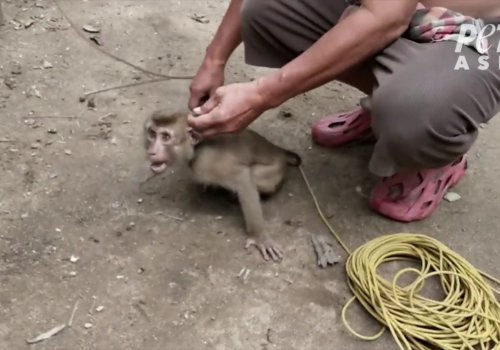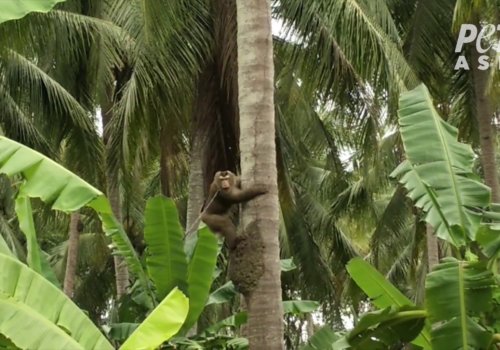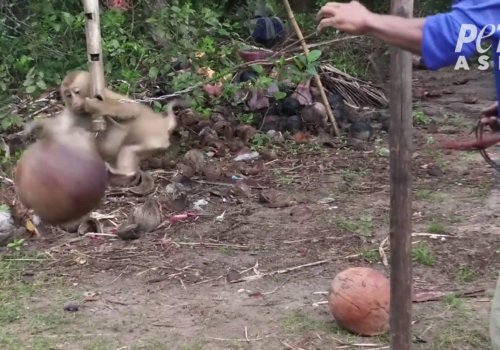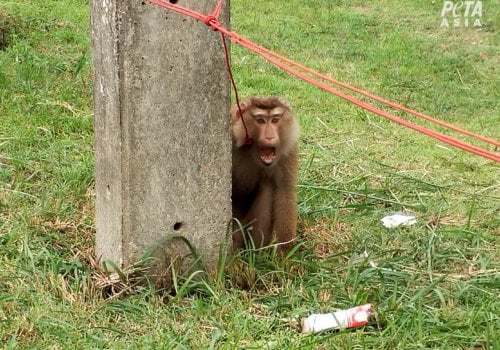Chained and Driven Insane
PETA Asia investigators visited eight farms on which captive monkeys were forced to collect coconuts, including those supplying Thailand’s major coconut milk producers, as well as several monkey-training facilities and a coconut-picking competition using monkeys. At each one, they documented abuse and exploitation.
Many monkeys are reportedly illegally abducted from their families and homes in nature when they’re just babies. They’re fitted with rigid metal collars and kept chained or tethered until they’re no longer useful to the coconut industry.
Denied the opportunity to move around freely, socialise with others, or do anything else that’s meaningful to them, these intelligent animals slowly lose their minds. Driven to desperation, they pace and circle endlessly on the barren, rubbish-strewn patches of dirt that they’re chained to.
Cruelly Trained and Teeth Pulled Out
The terrified young monkeys are forced to perform frustrating and difficult tasks, such as twisting heavy coconuts until they fall off the trees from a great height. An investigator learned that if monkeys try to defend themselves, their canine teeth may be pulled out.
To earn more money off these animals, some trainers also force them to participate in circus-style shows in which they entertain paying visitors by riding bicycles, throwing basketballs, and performing other confusing and demeaning tricks.
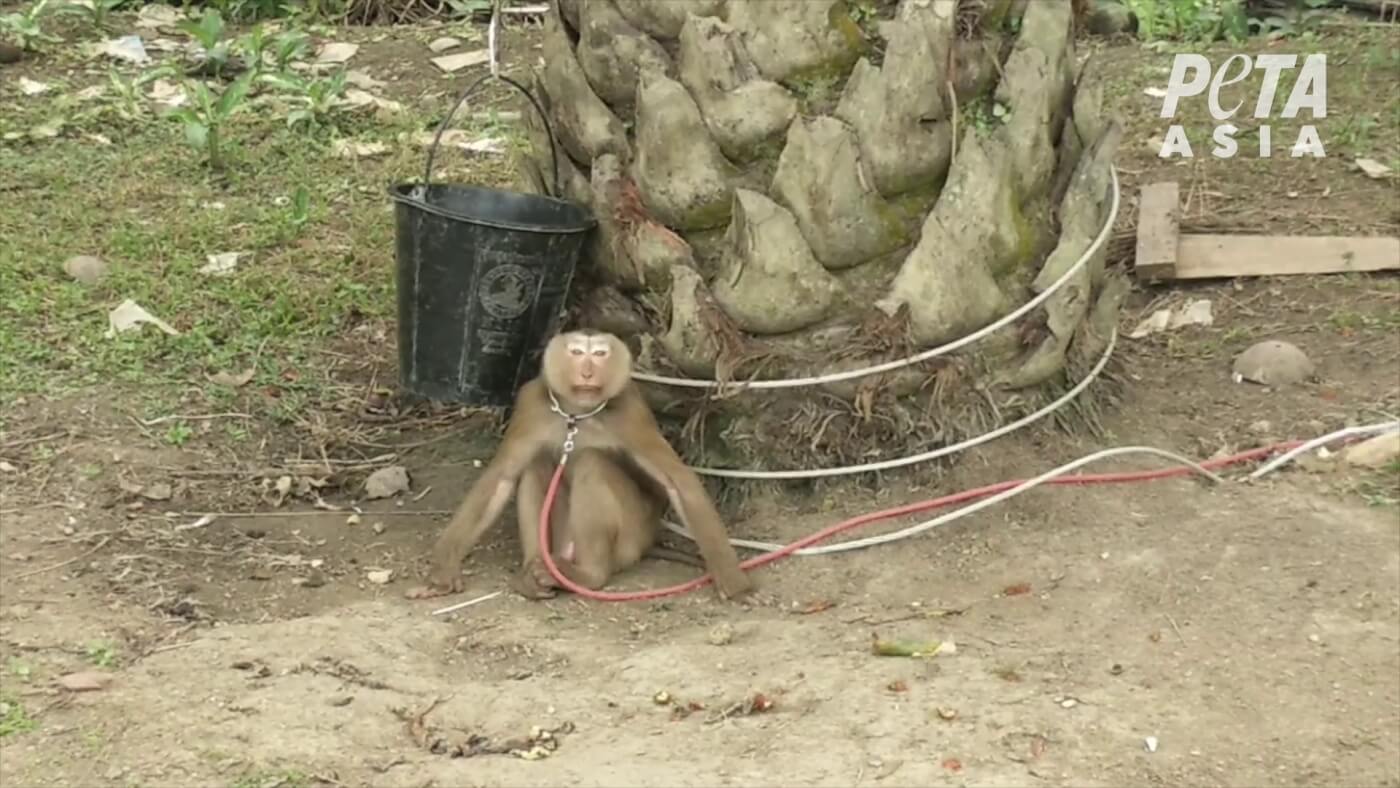
An investigator saw monkeys being transported in cramped cages that were barely large enough for them to turn around in and others left in locked cages in the back of a pick-up truck with no shelter from the driving rain. One monkey was seen frantically shaking the cage bars in a vain attempt to escape.
Tethered by the neck with a metal collar, the monkeys are forced to climb up and down trees and collect coconuts.
No Tropical Paradise
If you purchase coconut milk products made in Thailand, you may be inadvertently supporting this cruelty.
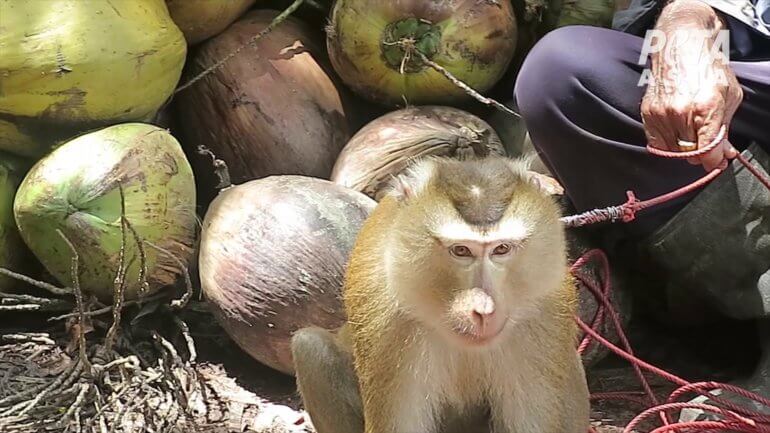
Other coconut-growing regions – including Brazil, Colombia, and Hawaii – harvest coconuts using humane methods such as tractor-mounted hydraulic elevators, willing human tree-climbers, rope or platform systems, or ladders, or they plant dwarf coconut trees. Studies have shown that these methods are superior to using monkeys, who can’t distinguish between ripe and unripe fruit, and the ripe coconuts get bruised when the monkeys drop them to the ground.
Coconut water typically comes from coconuts grown on dwarf trees, including the Nam Hom variety, and harvesting them doesn’t typically involve monkey labour.
New Footage Exposes Monkey Labour Cover-Up in Thai Coconut Industry
Going back to Thailand one year after PETA Asia exposed the use of forced monkey labour on Thai coconut farms, investigators found that manufacturers and the Thai government are lying to the public and importers about monkey use, which continues despite false claims and empty promises.
Help Monkeys
You can take action to put an end to this abuse.
- Please make sure any coconut products you buy don’t come from Thailand or suppliers that use monkey labour.
- Send a message to HelloFresh urging it to stop supporting this cruel industry by sourcing its coconuts from places that don’t use monkeys:
- Share this investigation with your friends and family:
Sharing our content may mean you also share your personal data with the chosen social media platform. Find out more here.

